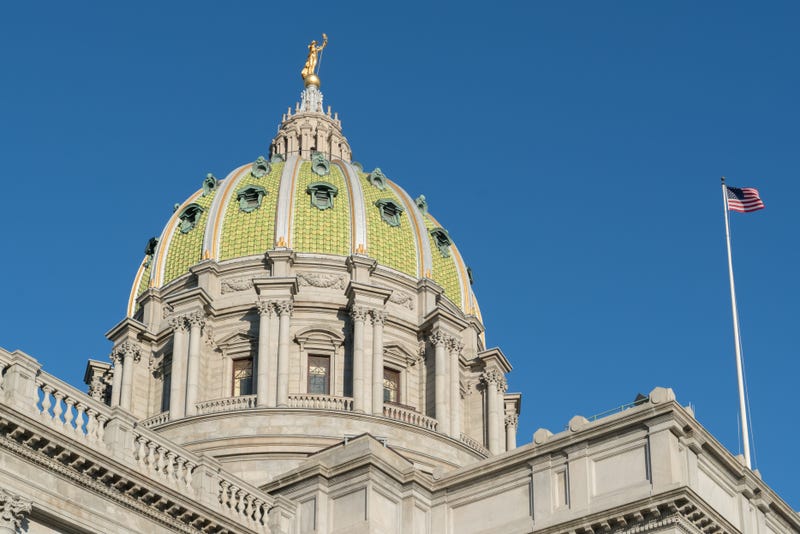
PHILADELPHIA (KYW Newsradio) — The budget impasse in Harrisburg is now in its second week. While closed-door negotiations continue, the State House has advanced a bill that supporters say will get the process moving again.
The bill is a budget framework that needs to be filled with other, more specific bills.
But House Majority leader Montgomery County Democrat Matt Bradford says the plan cuts $1 billion from Gov. Josh Shapiro’s $51.5 billion proposal.
“Showing that we are pragmatic and wise and humble enough to recognize that no one chamber and no one party will get everything it wants,” Bradford said.
House Republican leader Jesse Topper says while he appreciates the efforts to trim the final number, a budget isn’t just about numbers, it's also about policy.
“It's public policy that will drive economic growth in Pennsylvania, and economic growth is the only answer to future sustainable budgets. Unleashing our energy potential is, in fact, one of the cores to that,” Topper said.
Topper also specified making sure benefits programs go to the people they’re meant to go to, and school choice.
But Bradford says, until public schools are fully funded, any talk of funneling money to private schools is a non-starter.
The Pennsylvania House passed the bill with all Democrats and three Republicans voting in favor, including Bucks County’s K.C. Tomlinson and Craig Williams, of Chester and Delaware counties.
As the bill is a framework, it will likely look much different once it gets through the State Senate.
“While we appreciate the need to expedite this process in the middle of July, more importantly, we need to get it right, and this bill does not do that,” said House Appropriations Minority Chairman, Republican Jim Struzzi.
Pennsylvania’s budget is constitutionally required to be completed by June 30. House Appropriations Committee Chairman Jordan Harris says the longer the state is without a budget, the more it hurts organizations that rely on state funding.
“Any more delay brings havoc to those schools and those school districts. It requires nonprofits to take out lines of credit to continue to operate that they will not be reimbursed for the interest that they're paying.”
